It’s something that most horse owners experience at some point, thinning or an unsightly gap in your horses mane. Are you scratching your head at what could be causing it? Check out the following 4 reasons your horses mane is falling out.
1. Rugs, Rugs, Rugs!
Rugs can be a problem if they don’t fit your horse well and obviously every horse is different, so finding the best fit is a must if you want to protect from wither, shoulder or mane rubs. Every brands seem to fit different breeds and shapes of horses differently. Once you find a good fit I tend to stay with that brand, for example, deep chested broader Spanish horses seem to fit Rambo / Rhino rugs really well, but a lot of other brands are too tight across the chest and wither –> leading to rubs and mane loss.
Shoulder guards and mane guards are also a good way to help protect your horses mane, but remember to get the right size and to keep them clean! (Image credit: Weatherbeeta).
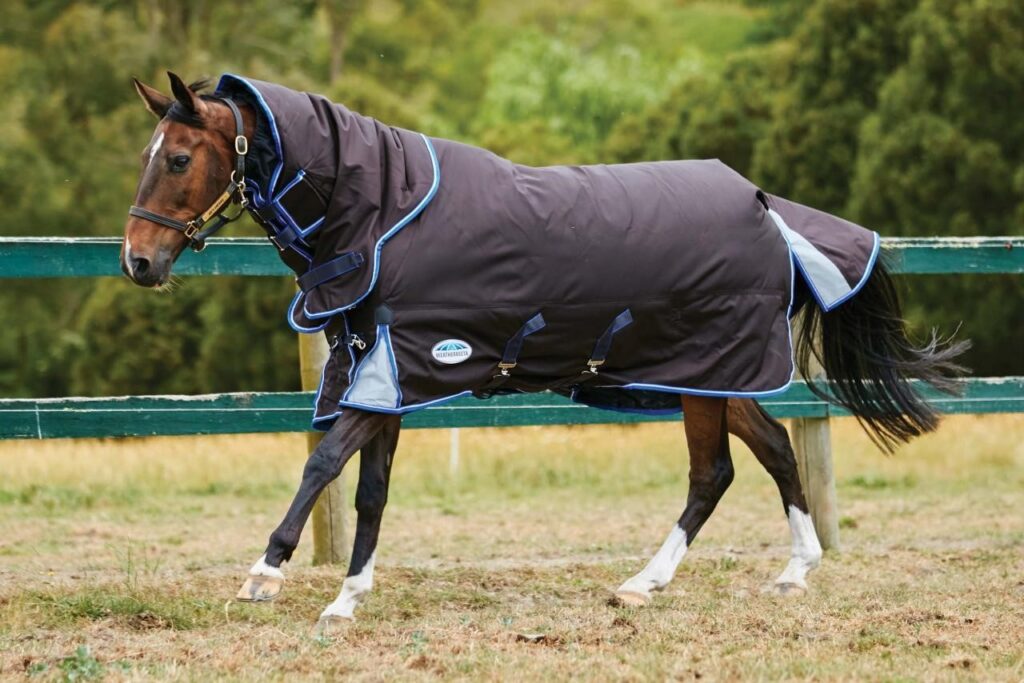
2. Other horses
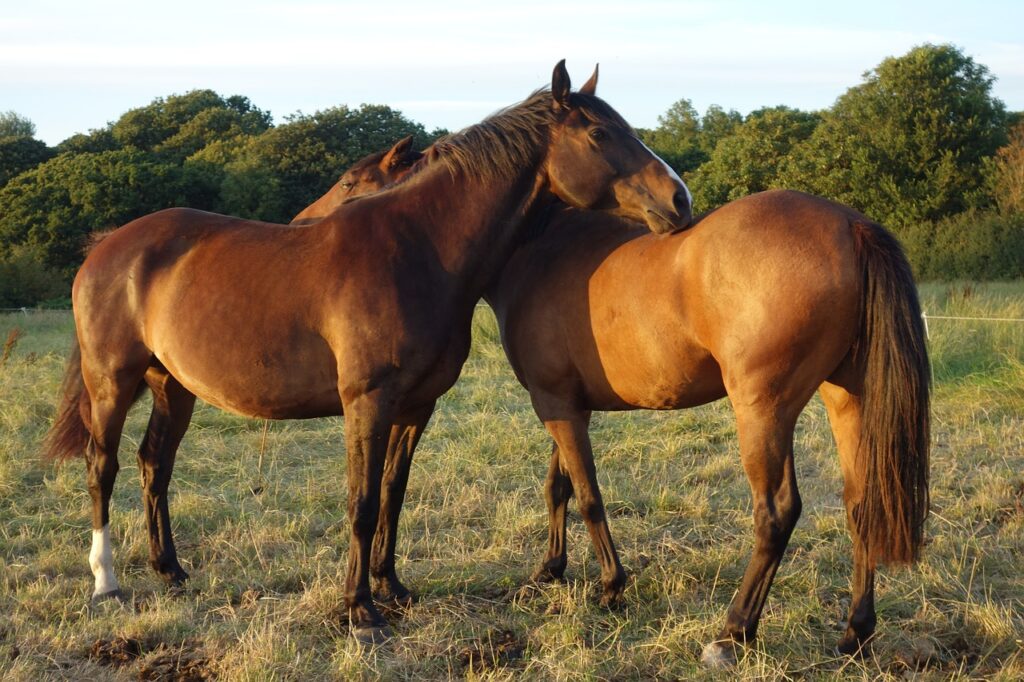
I am sure it goes without saying, but other horses grooming, playing or fighting can be a cause of mane issues. If you think it could be another horse causing the damage then observe them in the field/stable to determine the cause, then you could try something spraying something like Barrier’s Yum Yum spray, which is a 100% natural, foul tasting spray that can deter chewing.
3. Grooming
- Brushing – It is not recommended to brush manes and tails everyday, as you are more likely to pull out excess hair. I tend to only brush once, maybe twice a week.
- Products – just like your own hair, nourish your horses with the right products, stay away from silicates and detangle sprays as they can make the hair brittle. Instead use something like coconut oil to nourish the hair follicles, which you can buy from any supermarket or discount shop. I tend apply it after I have washed the mane and tail and also in-between washes to give it a bit of a lift and help strengthen the hair. Rub it in from root to tip!
- Don’t wash too regularly – again it isn’t recommended to over wash your horse as soaps and conditioners are not a natural occurrence and you don’t want to wash away the horses natural grease.
(Image: PetMD).
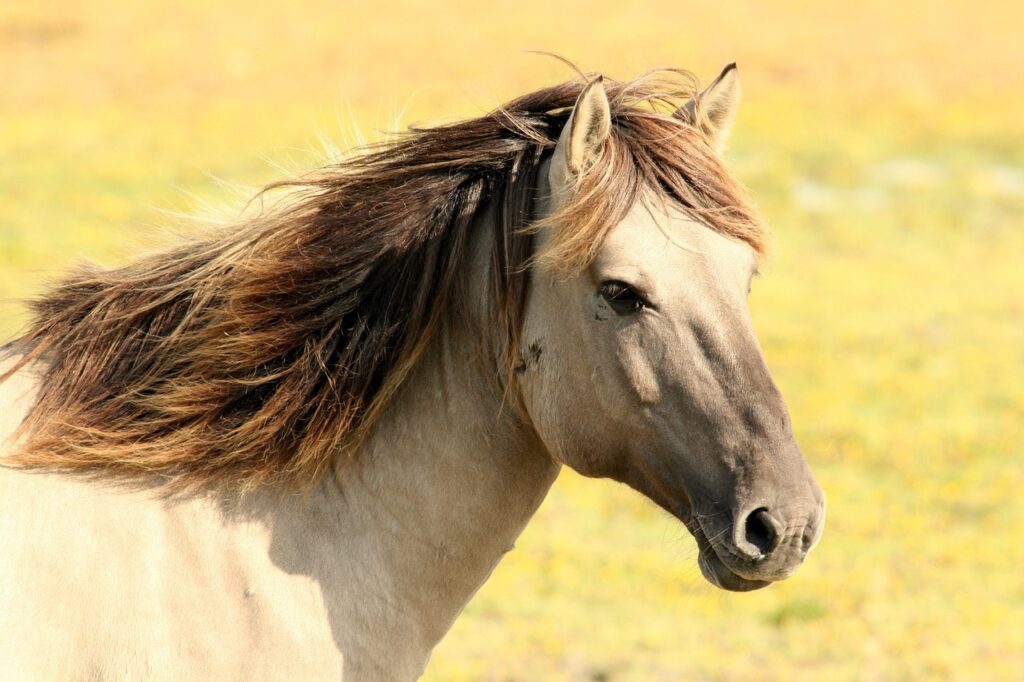
4. Rubbing
Another easy one to look for – is your horse rubbing in the field, when tied up or in the stable? Things to think about here:
- Is it moulting season i.e., Winter into Spring – If it is, then help your horse out by giving them a daily brush with a corse brush or shedding blade. Make sure you are getting the areas that are bothering your horse, under the mane can be an itchy spot or around the tail. A good itch with your fingers at the roots of the mane can also help alleviate itchiness and you can also identify if there are any bumps or scabs hiding there.
- Lice or mites? Check your horse all over for these bugs as they can cause a lot of irritation for your horse. If you are struggling to see any, or do notice some then get in contact with your vet for assistance on treatment.
- An allergy – horses just like us can have intolerances or allergies to feeds, supplements or sprays. Some key allergens are sugar, starch, alfalfa, or garlic for example which are in many feeds. Working out if something could be causing a problem and limiting these can bring your horse into balance and limit the itching.
- Worms – Some worms can cause discomfort and itchiness especially pin worm.
Westgate Labs state that – “Pinworm eggs are ingested by the horse, hatching to live in the intestine. Eggs are laid on the skin surrounding the horse’s bottom and not passed in the faeces like other worms. A sticky residue which contains the eggs can sometimes be seen around the anus of infected horses. Fortunately pinworm does not cause a problem to the horse’s digestive system or internal damage like other worms. However infection can cause irritation, sometimes so severe that horses will rub themselves raw around their tail head; this can lead to skin infections and further problems.” - Fly bites – these could be midges, horseflies, deer flies or anything in between. If fly bites are the cause then try applying some bite gel to soothe the area, put on a fly rug or mask if you are able to and apply fly spray, cream or gel to the affected areas. – Head, ears, mane, dock of the tail, between their legs.
- Sweet itch? First thing to note is that sweet itch tends to establish itself in young horses. These horses have an uncontrollable itch from midget bites that causes rubbing, scabs and broken skin. The worst times of the year are Spring and Autumn, but can occur throughout the year depending on the weather, your horse and its location. If you think it might be sweet itch, think about covering the horse up in a fly rug and mask from February each year. Look out my article for help for sweet itch coming soon. (Image credits: Wikipedia and Intake Vets.)
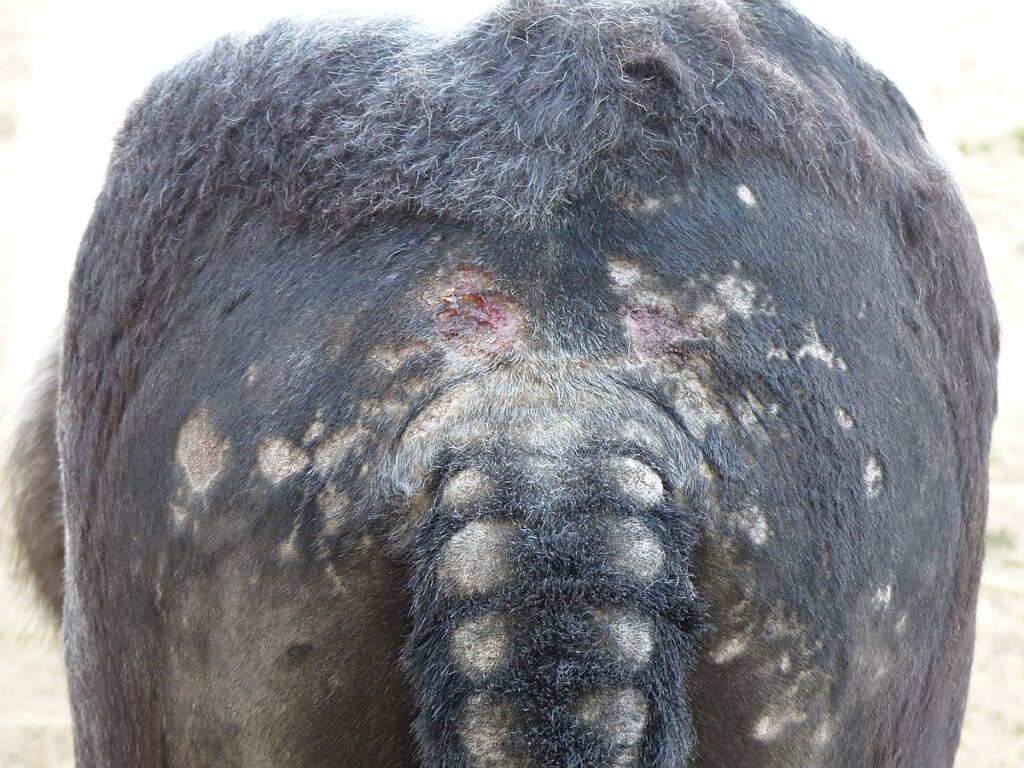
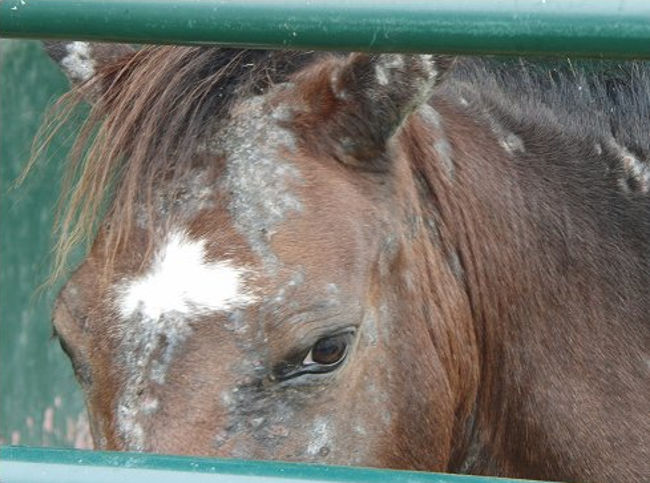
Conclusions
It is key to look at all the above and source your own conclusions about the possible causes of mane loss. Observing your horse to see what they get up to:
- is their behaviour due to flies, is it worse when they are in the field?
- Is it mites – are they biting themselves or their feet?
- Is it sweet itch – is it sweet itch season and are they being bothered by midges in the field or yard, is it constant?
- Have you recently changed their feed, are they worse after eating? Do they seem grumpy after food?
- Are they only rubbing their bum and could it be pin worm?
The key is not to panic, take precautionary steps (discussed above) to limit the rubbing by using doing what you can and maybe investing in a mane guard, but finding the source of the problem is the key.
Also it is key to remember that just like us, once something has become itchy it can last a long time and the habit of itching can last longer than the actual cause, so my advice is to not become complacent, keep an eye on your horse and try to soothe the areas with healing cream such as Biteback’s sweet relief healing cream, (worked wonders on my sweet itch horse). Once you have found the source of the problem you can put a plan into action to stop the cause and limit the damage.
If you have any comments or questions, drop them in the box below.
Please note I am in no way affiliated with any products and all comments are my personal opinion from use of the products.
